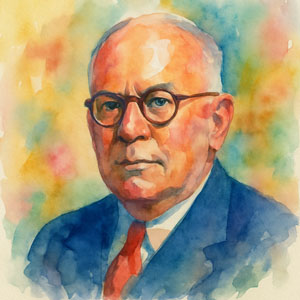 Born on this day in Reading, Pennsylvania, poet Wallace Stevens (1879–1955) spent his mornings in the world of law and insurance, and his evenings crafting poems that shimmered with imagination. He proved that a steady life could still contain brilliance, that the everyday and the extraordinary are never far apart.
Born on this day in Reading, Pennsylvania, poet Wallace Stevens (1879–1955) spent his mornings in the world of law and insurance, and his evenings crafting poems that shimmered with imagination. He proved that a steady life could still contain brilliance, that the everyday and the extraordinary are never far apart.
For Stevens, poetry was revelation — a way of making the invisible visible. He once wrote, “After the final no there comes a yes, and on that yes the future world depends.” His lines drew meaning out of silence, rain, and blue horizons, showing that beauty dwells in the smallest details.
Although he wrote quietly for decades, recognition came late. His Collected Poems earned the 1955 Pulitzer Prize, affirming his place as one of America’s great voices. He taught that imagination itself is a form of courage: to look closely, to name what we see, and to shape the world into something luminous.
His work reminds us that a life need not be loud to leave a lasting mark. In images of light and weather, in cadences as steady as breath, Stevens revealed how looking deeply is itself a celebration: Poetry woven into the fabric of living.

 Look long, and with
Look long, and with